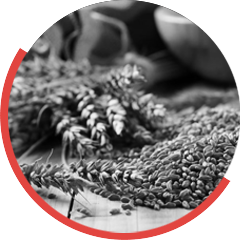Digital technologies are driving the paradigm shift in the commodity market. Adoption of Intelligent platforms in commodity sourcing has been growing since the last decade.
Manufacturers and traders are increasingly adopting modern technologies like Artificial Intelligence, Machine Learning and Blockchain to have better control over the volatile commodity markets
Digitization in the commodity world is reshaping how commodities are procured with optimal use of present-day technologies, thus increasing productivity.
Technology Adoption and Market Drivers:
Cost reduction has always been the prime objective of procurement organizations. Other major concern of the Commodity trading and manufacturing organizations is to mitigate the risks of the volatile market conditions. Today the Social Mobile Analytic Cloud (SMAC) concept has been extended to commodity industry as well and is driving innovation and efficiency.
Contrary to the Forwards market, the Futures market is designed for the win-win situation for both the Producers and Procurement organizations. Today, the world has many Commodity exchanges to regulate and bring efficiency into this market. There are still many challenges to be addressed due to the varying conditions of the commodity market like logistical barriers and climate change which are demanding visibility on the value chains and for this purpose, organizations are leveraging advanced technologies.
One such example: Recently Coffee board of India deployed a blockchain-based coffee trading app to connect coffee growers with various players on the Market. This welcoming move has not only established visibility for the coffee market, but has also been successful in maintaining fair pricing for coffee growers of remote hillyregions in India.
With the help of Big Data Analytics, better control over pricing can be achieved through predictive modelling.
Social media has made it easier for suppliers, traders, and producers to stay connected. Robotic Process Automation is making cross-functional operations seamless and helping in digitizing supply chain processes.
Sustainable Sourcing is becoming a new normal as some of the FMCG giants are deepening their focus into fair trade and Responsible sourcing. This resulted in a demand for state-of-the-art supplier Auditing Systems.
Role of CTRM systems in Commodity Procurement and Trading:
Modern Commodity Trading and Risk Management systems utilise advanced technologies and act as One-Stop Digital Platforms to manage complex supply chains. This inclusion of modern technologies gives them an advantage over legacy commodity systems. Modern day CTRM systems not only help in staying updated with the evolving regulatory environment, they also cater to the specific needs of each commodity category like Hard, Soft and Energy. Energy CTRM systems are also termed as ETRM systems. CTRM systems provide better traceability of the transactions and insightson market price fluctuations.
Benefits of ERP Integrated CTRM systems:
ERP systems provide integrated insights into various functions like finance and supply chain. Having the CTRM system integrated with the ERP gives direct visibility on the contracts and supply chain thus helps in better decision making. Commodity Lifecycle Management becomes hassle free when the CTRM systems are integrated with ERP. Greater visibility on P&L can be achieved through this practice.
Sonata’s unique Digital CTRM Platform:
Sonata’s Digital CTRM Platform is built on top of the future ready Dynamics 365 Platform and provides a strong, rigorous yet flexible solution to traders and manufacturers managing complex commodity supply chains. Visit our offering Page to know more:

